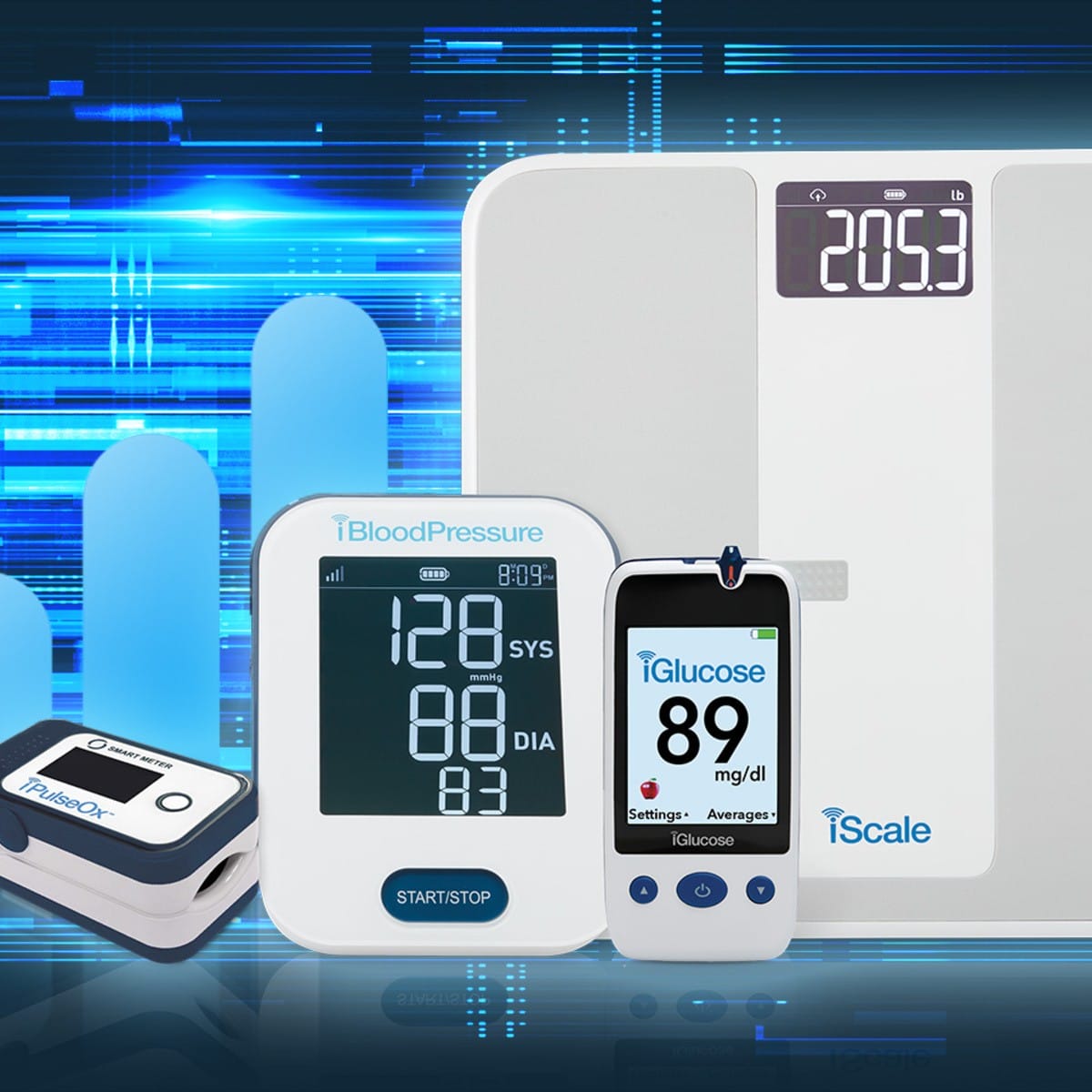The battle between connectivity options for remote patient monitoring devices is ongoing in the ever-evolving landscape of healthcare technology. Two prominent contenders stand out among the many choices: cellular solutions and hub-connected Bluetooth® solutions. While both have advantages, cellular solutions are increasingly on top for various reasons. Let’s explore why cellular connectivity is often the superior choice, especially regarding reliability, scalability, and security.
-
Simple For Patients To Use
Using cellular connected devices are easier for patients to use because they don’t require Wi-Fi, syncing, pairing or a hub. After the patient tests their vital sign, it is sent immediately and seamlessly to their provider for real-time tracking. This improves patient adherence to testing guidelines because it eliminates the frustrations that go with a Bluetooth and/or hub type system.
-
Ubiquitous Connectivity
One of the most compelling advantages of cellular technology is its widespread coverage. Cellular networks blanket vast areas, providing connectivity in places that Bluetooth hubs cannot reach. This ubiquitous presence makes cellular solutions ideal for applications that require mobility or operate in remote locations.
-
Enhanced Security
Security is paramount in our increasingly connected world. Cellular networks benefit from advanced encryption protocols and the rigorous security measures implemented by cellular service providers. These layers of security protect data transmission from unauthorized access and cyber threats far more effectively than most hub-connected Bluetooth solutions. Cellular connections, with their ability to leverage virtual private networks (VPNs) and end-to-end encryption, offer a secure channel for transmitting sensitive information, making them a preferable option for businesses and industries with stringent security requirements.
-
Superior Scalability
As businesses grow and their operations expand, a scalable connectivity solution becomes critical. Cellular solutions shine in their ability to scale seamlessly. With cellular technology, adding new devices or expanding coverage is as simple as ensuring the device has a cellular module and a SIM card. This plug-and-play scalability contrasts sharply with Bluetooth solutions, which often require additional hubs and complex configurations to manage increasing connections, resulting in a logistical headache as the network grows.
-
Reduced Latency and Higher Data Throughput
Cellular solutions outperform hub-connected Bluetooth setups in applications where real-time data transfer and high-speed connectivity are essential. Cellular networks offer lower latency and higher data throughput, facilitating the swift transfer of large volumes of data. This is crucial for remote monitoring, telemedicine, and live streaming applications, where delays can hinder performance and affect outcomes.
-
Reliability and Consistency
The reliability of cellular networks, underpinned by extensive infrastructure and continuous improvements by service providers, ensures a consistent connection that hub-connected Bluetooth systems struggle to match. Thanks to redundancy and network management practices, cellular networks are designed to provide consistent service, even during high demand or in adverse conditions. This reliability is crucial for critical healthcare, finance, and public safety applications, where connectivity disruptions can have significant repercussions.
-
Independent Functionality
Cellular devices operate independently and do not require proximity to a specific hub or gateway. This autonomy makes cellular solutions more flexible and accessible, especially in applications spread over large areas or in diverse locations. In contrast, Bluetooth devices must remain within range of their hub, limiting their usefulness in mobile or geographically dispersed applications.
-
Power Efficiency for Wide Area Networks
With the advent of Low Power Wide Area Network (LPWAN) technologies, such as NB-IoT (Narrowband IoT) and LTE-M (LTE Cat-M1), cellular solutions have become increasingly power-efficient for wide-area connectivity. These technologies enable a wide range of devices and services to be connected using cellular telecommunications bands. This means devices can run on battery power for years without the need for frequent recharging or replacement, which is a significant advantage over traditional cellular technologies and often more power-efficient in wide coverage applications than Bluetooth solutions, especially when Bluetooth devices require constant connectivity or frequent data transmission that drains battery life more rapidly.
While hub-connected Bluetooth solutions offer benefits in specific contexts, cellular solutions stand out for their reliability, security, scalability, and performance. As we continue to embrace the possibilities of a connected world, the advantages of cellular technology become increasingly apparent, making it the preferred choice for a wide range of applications. Whether for individual use or enterprise-level operations, cellular connectivity offers a robust, secure, and versatile solution that meets the demands of our digital age. Contact Smart Meter today to learn more.




